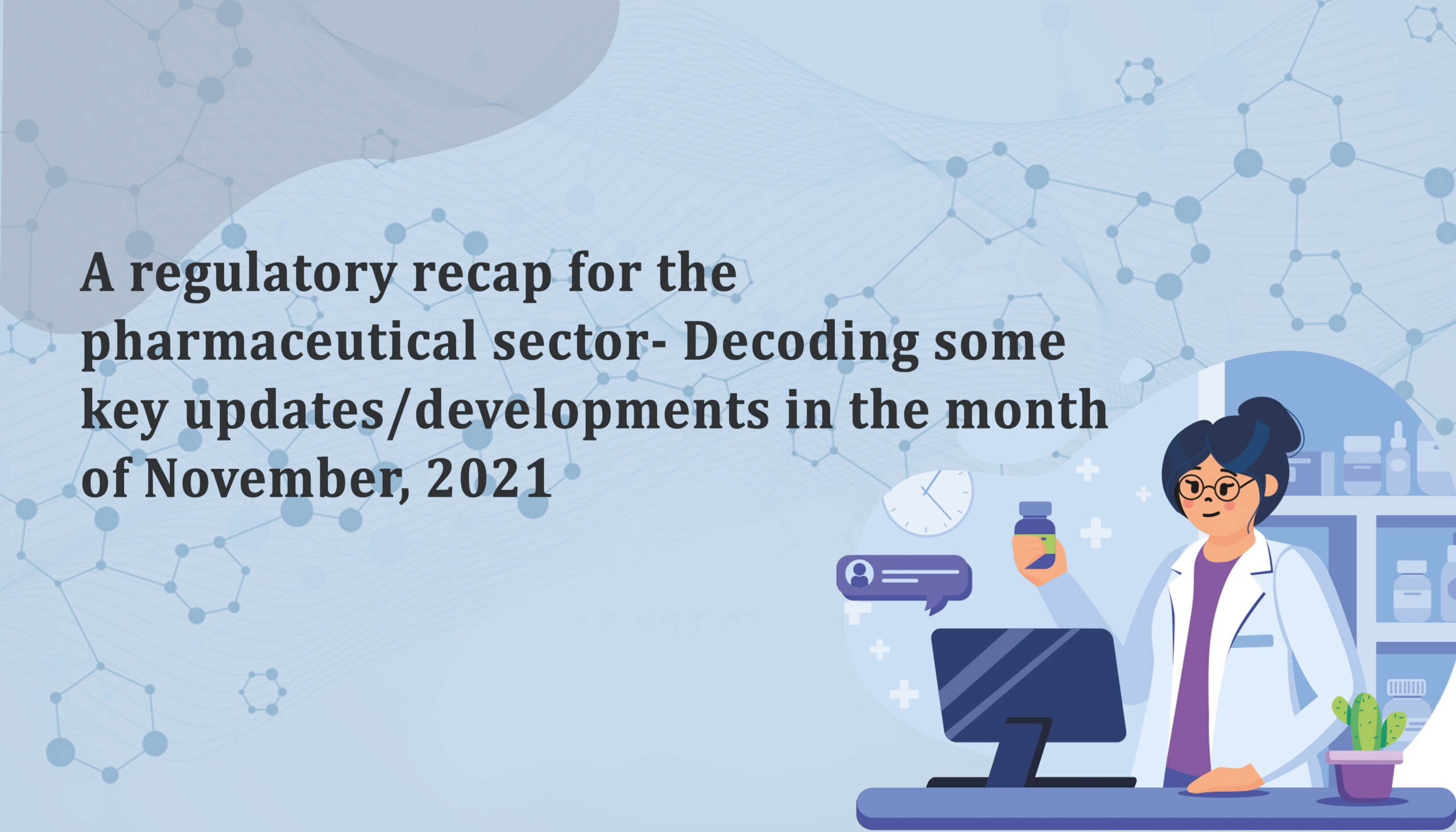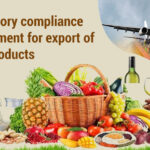The Indian pharmaceutical industry has been undergoing substantial changes in the realm of innovation or research and development, making it one of the global leaders in the development of drugs. However, with the emergence of innovation, the need for regulatory transformations and stable legal policies governing the sector also increases. This blog seeks to address some of the key regulatory developments that the pharmaceutical sector in India has undergone over the month of November and further to analyze these changes and their subsequent implication.
On 3rd November, 2021 the Central Drugs Standard Control Organization(CDSCO) extended the timeline for obtaining a licence to manufacture or import certain medical devices till 30th June, 2022;
Previous Position
The CDSO by an order dated 18th April, 2021 had notified that the below-mentioned devices (intended for use in human beings) were to be regulated as drugs with effect from 1st April, 2021:
-
All implantable medical devices
-
CT scan Equipment
-
MRI Equipment
-
Defibrillators
-
Dialysis Machine
-
PET Equipment
-
X-Ray Machine
-
Bone marrow cell separator
Further the manufacturers or importers of these devices were required to obtain an import or manufacturing license form the concerned state or central license authority with effect from 1st April, 2021.
Current position
In light of the representations by various stakeholders regarding their unpreparedness in complying with the regulatory requirements within the timelines, the CDSO decided with the approval of The Ministry Of Health And Family Welfare (MoHFW) to extend the timeline for obtaining a licence to manufacture or import certain medical devices till 30th June, 2022 in order to prevent any disruption in supply chain or access to patients
Implication
-
The order seeks to provide a huge relief to existing manufacturers or importers of the said devices who had applied for the grant of a manufacturing or import license in respect of the same, to the Central or state license authority within 18th April, 2021 shall continue to manufacture and import the same until 20th June, 2022.
-
Further, CDSCO clarifies that in case of an incomplete application by such applicant, they are required to ensure submission of all necessary documents by 31st March, 2021 which shall be disposed off by the Licensing authority within three months of its receipt.
-
CDSO further mandates the printing of the manufacturing or import license number on labels from 1st of July, 2022.
On 18th November, 2021 the Competition Commission of India (CCI) released a Market Study on the Pharmaceutical Sector in India along with it’s finding and observations on the same
Background
Several aspects having an implication over competition in India such as trade margins, online pharmacies, channels of distribution and the prevalence of branded generic drugs in India were the main points of focus in this study. The study further seeks to address the interface between competition and regulation and therefore ascertain CCI’s advocacy priorities.
Key Observations and findings
-
Brand Competition over-riding price competition in the market for generic drugs – The perception of differentiated quality of drugs produced by different chemists who strived to create a brand image is the main reason behind accelerating brand competition.
-
The correlation between price and market share – It was observed that leasers having a higher market share charged relatively high prices the those with a lower share in the market.
-
Correlation between drug distribution and competition – It was noticed that the distribution network and distortion due to competition in the supply chain acts as a major source of hinderance to the pharmaceutical supply.
-
Rise in the market share of online pharmacies – With the pandemic situation the share of online pharmacies in the market grew substantially.
Key recommendations
-
Effective price competition in generics that would in turn improve access to affordable healthcare to consumers.
-
Ensure an effective mechanism under the CDSCO to comply with uniformity and consistency in quality standards. Further increase in drug testing frequency would also ensure consistency in quality.
-
Establishing a National Digital Drugs Databank to ensure access to information to everyone in the sector.
-
Adoption of self regulatory measures by the online pharmacies to ensure that the privacy of patients is safeguarded at all times, until data protection laws are enforced.
-
Adoption of a proper compliance mechanism under competition laws to prevent anti-competitive practises in the pharmaceutical sector.
On 29th November, 2021, The Ministry Of Health And Family Welfare (MoHFW) notified the Drugs (6th Amendment) Rules, 2021
Background
-
The MoHFW had previously issued the draft rules to amend the Drugs and Cosmetics Rules, 1945 through a notification dated 7th September, 2021.
-
The notification further invited objections and suggestions from persons likely to be affected from the said amendment within 7th October, 2021.
-
Subsequently, upon due consideration of the suggestions and objections received by the Central government, it on consultation with the Technical Advisory Board amended the said Rules.
Previous Position
Under Rule 24 sub-rule(3) a payment of fee was required for obtaining a duplicate copy of an import license which may be issued under the Rules for drugs.
Similarly as per Rule 24A sub-rule(7) a payment of fee was required for obtaining a duplicate copy of a registration certification granted to a manufacturer of drugs which may be issued under the Rules.
Current Position
-
The words “or for a duplicate copy of the license issued under this rules, if the original is defaced, damaged or lost” was omitted from Rule 24 sub-rule(3).
-
The words “or for a duplicate copy of the Registration Certificate, if the original is defaced, damaged or lost” was omitted from Rule 24A sub–rule (7).
Implication
It has done away with the requirement of payment of any fee for obtaining a duplicate copy of an import license or a registration certificate in case the original one is either defaced, lost or damaged.
Written by: Nishtha Chakrabarti
Reviewed by: Ananya Shukla
Disclaimer
All material included in this blog is for informational purposes only and does not purport to be or constitute legal or other advice. This blog should not be used as a substitute for specific legal advice. Professional legal advice should be obtained before taking or refraining from an action as a result of the contents of this blog. We exclude any liability (including without limitation that for negligence or for any damages of any kind) for the content of this blog. The views and opinions expressed in this blog are those of the author/(s) alone and do not necessarily reflect the official position of Lexplosion Solutions. We make no representations, warranties or undertakings about any of the information, content or materials provided in this blog (including, without limitation, any as to quality, accuracy, completeness or reliability). All the contents of this blog, including the design, text, graphics, their selection and arrangement are the intellectual property of Lexplosion Solutions Private Limited and/or its licensors.
ALL RIGHTS RESERVED, and all moral rights are asserted and reserved.





